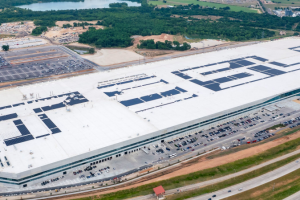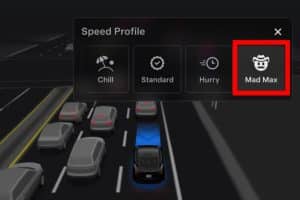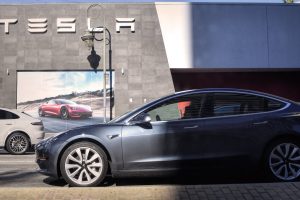Key Takeaways
- A Florida man, Andrew Tutil, was charged with assault after he attempted to drive into protestors outside a Tesla store.
- Witness reports indicate that Tutil drove into a crowd of senior citizens but avoided injuring any as they moved out of the way.
- Tutil was arrested and charged with first-degree felony aggravated assault after claiming brakes and electronics malfunctioned.
- Ongoing protests against Tesla and Elon Musk, tied to political actions and statements, have increased in recent weeks.
- The protests are part of a larger “Tesla Takedown” movement targeting Musk’s association with Trump and controversial statements.
- Protestors cite various concerns including attacks on queer communities, Musk’s alleged Nazi alignment, and geopolitical controversies.
- Several acts of vandalism, including arson and graffiti, have been reported at Tesla stores worldwide.
- The movement started over perceived gestures at Trump’s inauguration and is continuing with extensive protests across the US.
- High-profile figures like Benjamin Netanyahu and the ADL have both defended and criticized Musk’s actions and statements.
In a world increasingly defined by tension between corporate giants and activist movements, the recent events surrounding Tesla offer a vivid illustration. Here, we delve into the dynamics of the Tesla Takedown movement, exploring the motivations behind the protests, the controversies involving CEO Elon Musk, and the broader implications for corporate responsibility and public accountability.
The Story Behind the Headlines
In a dramatic turn of events, Andrew Tutil, a 44-year-old Florida man, was thrust into the spotlight after attempting to drive into protestors outside a Tesla store. These protestors, who have mobilized against both Tesla and its CEO, Elon Musk, reflect a growing movement of dissent against perceived corporate malpractice and political alignment.
What Happened and Why It Matters
- Incident Overview: Tutil, who reportedly drove into a crowd of senior citizens outside a Tesla store, faced arrest and charges of first-degree felony aggravated assault. Interestingly, Tutil claimed a malfunction in his vehicle’s brakes and electronics—a statement that has been met with skepticism.
- The Role of Tesla Protests: This incident isn’t an isolated event but a symptom of the broader protests against Tesla. These protests have been gaining momentum in recent weeks, largely spurred by Musk’s perceived political actions and affiliations.
Understanding the Tesla Takedown Movement
The Roots of Discontent
- Political Associations: Many protestors are particularly concerned with Musk’s associations with the Trump administration, a sentiment intensified by Musk’s role in Trump’s “government efficiency” initiative.
- Controversial Symbolism: Demonstrations picked up pace following accusations that Musk displayed a Nazi-like gesture at Trump’s inauguration—an act he has deflected despite polarizing public opinion.
- Concerns of Minority Communities: Activists also highlight attacks on the rights of queer, trans, and non-binary individuals, attributing part of their opposition to Musk’s perceived stance on these issues.
The Movement’s Impact
- Scale and Scope: Dubbed the “Tesla Takedown,” the movement has sparked over 500 protests at 277 stores across the U.S. These protests are not confined to a single issue but encapsulate broader concerns about corporate responsibility and accountability.
- Acts of Vandalism: The movement has sparked acts of vandalism at Tesla locations worldwide, ranging from graffiti to arson, illustrating the intensity of public sentiment.
Navigating the Legal and Safety Landscape
Legal Repercussions
Protestors, like Tutil, face a complex legal landscape. The Trump administration has branded attacks against Tesla as “domestic terrorism,” prompting FBI investigations.
Safety Measures and Store Response
Tesla’s response has been multifaceted, involving enhanced security measures at their stores to safeguard employees, customers, and property. As tensions rise, these measures remain crucial to maintaining public safety and minimizing conflict.
Broader Implications for Corporate Responsibility
- Balancing Act: Tesla, like many corporations, stands at a crossroads between pursuing business interests and recognizing the broader social and political landscapes shaping public opinion.
- Public Accountability: The protests symbolize a demand for greater transparency and accountability in corporate governance. High-profile defenses and criticisms alike, such as those from Israeli Prime Minister Benjamin Netanyahu and the ADL, reflect the polarized nature of this discourse.
The Tesla Takedown movement is more than a clash between a corporation and its dissenters; it’s a reflection of the complex socio-political forces shaping contemporary activism. As tensions persist, the broader narrative underscores the necessity for corporations to engage responsibly with societal issues, valuing transparency and accountability in their operational ethos.





